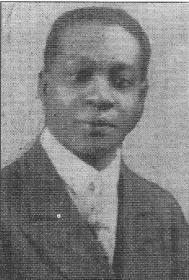Carter Walker Wesley facts for kids
Quick facts for kids
Carter Walker Wesley
|
|
|---|---|
 |
|
| Born | April 29, 1892 Houston, Texas
|
| Died | November 10, 1969 (aged 77) Houston, Texas
|
| Education | Fisk University, Northwestern University |
Carter Walker Wesley (April 29, 1892 – November 10, 1969) was an important American lawyer, newspaperman, and political activist. He spent his life fighting for civil rights and equality for African Americans. He used his skills in law and publishing to make a big difference in Texas and beyond.
Contents
Carter Wesley's Early Life and Education
Carter Walker Wesley was born in 1892 in Houston, Texas. He grew up in Freedmen's Town, a successful black neighborhood in the city. After high school, Carter moved to Nashville, Tennessee. In 1917, he graduated with high honors from Fisk University.
Inspired by leaders like W. E. B. Du Bois, Wesley joined the NAACP. He planned to start a career in law. However, World War I began and changed his plans.
Carter Wesley's Military Service
During World War I, Wesley volunteered for the U.S. Army. He joined a special program to train black officers. This program was held at Fort Des Moines in Iowa. He became a first lieutenant.
Wesley and his unit were sent to France. He fought in areas like Argonne and Verdun. In 1918, he was assigned to the 372nd Infantry Regiment. He trained with French officers. Later, he moved to the 370th Infantry Regiment. He fought in the battle of Oise-Aisne that same year. He even commanded his company when his captain was wounded. Wesley returned home in 1919.
Carter Wesley's Fight for Civil Rights
After the war, Wesley continued his law studies at Northwestern University in Evanston, Illinois. He became very active in civil rights issues as an attorney. He believed that the NAACP should rely on black attorneys for cases in Texas.
Challenging Unfair Voting Rules
Wesley worked with other NAACP members, including Thurgood Marshall. They fought against the state of Texas and the Texas Democratic Party. Their goal was to end the unfair "white primary" election. This rule stopped African Americans from voting in primary elections. Texas argued that the primary was a private matter for the Democratic Party.
Wesley and his law partner, James Nabrit Jr., challenged this idea. At first, the court allowed the white primary to continue. But Wesley did not give up. After many years, in 1944, the Supreme Court finally ruled that the Texas white primary was unconstitutional. This was a huge victory for voting rights.
Opening Doors in Education
Wesley also played a key role in ending segregation at the University of Texas Law School. He supported Heman Sweatt, a black student who was not allowed to attend because of his race. Wesley even hired Sweatt at one of his newspapers while the lawsuit was ongoing. This support helped Sweatt's case, which eventually led to the desegregation of the law school.
Carter Wesley's Publishing Career
As a lawyer, Wesley was very active in the civil rights movement. He soon became interested in the power of newspapers. He decided to focus on the publishing industry.
He took a job at the Houston Informer, a newspaper for African Americans. In 1929, he became the editor of the paper. By 1930, Wesley was promoted to vice president of the company. By the end of 1932, he was the manager. He eventually gained control of the newspaper. Under his leadership, the Houston Informer grew a lot. By 1945, it was the largest black-owned business in Houston.
Wesley also owned the Dallas Express, another newspaper published by Freedman's Publishing Company. He was chosen to go to Germany with 10 other black publishers. Their mission was to investigate claims of unfair treatment against black servicemen there.
Personal Life and Legacy
Wesley was married to Dorris Wooten and they had three children. After a successful career as a lawyer and newspaper publisher, he passed away in Houston on November 10, 1969. He was 77 years old. Carter Walker Wesley is buried in Paradise Cemetery (North) in Houston, Texas. His work helped pave the way for greater equality and justice for African Americans.
 | Jackie Robinson |
 | Jack Johnson |
 | Althea Gibson |
 | Arthur Ashe |
 | Muhammad Ali |

